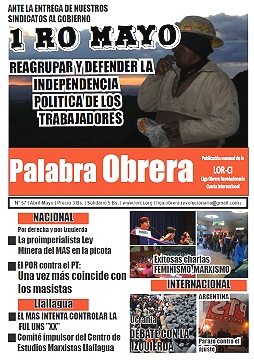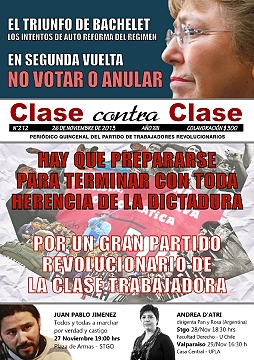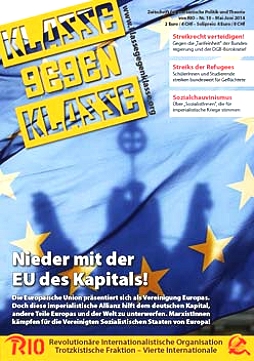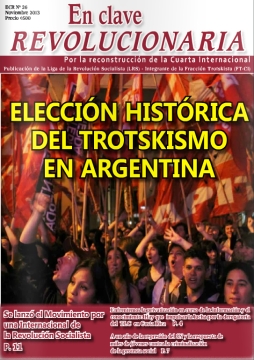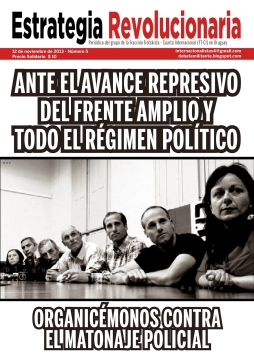A new conjuncture in Latin America
The workers’ movement enters the political arena
31/07/2013
In July, a wave of strikes and demonstrations rocked Chile, the original testing ground for neoliberal economic policies, and the new ‘progressive’ economic giant Brazil. Although the demonstrations were not enough to paralyse either country, they represented a “rehearsal” for a general strike and confirmed the entry of the powerful Latin American working class onto the political scene. It was the largest expression of industrial action for 20 years in Brazil and for decades in Chile, where workers and students have been fighting against Piñeira’s right-wing government.
These events constitute a trend that opened with the general strike in Argentina on November 20, 2012, and which was augmented by the May general strike in Bolivia called by the COB. In addition, in Uruguay primary and secondary school teachers have been on strike for more than two weeks, and in Peru public sector workers, health service doctors and university students have been resisting the attacks of President Ollanta Humala.
This process is itself part of a new international wave of mass demonstrations. In Turkey, Egypt and Brazil we have seen the development of a broad movement of young people and a growing intervention by the working class; in Europe there has been resistance to the austerity measures; and in China, India and other countries in Asia there has been an awakening of the labour movement.
The working class of the Southern Cone is a decisive force because of its role in production and its social weight. It possesses a rich history of struggle and militancy, and is beginning to test its strength and stand on its own feet by resorting to its traditional organisations – the unions – and reviving its own methods of struggle: the strike, the picket and the demonstration. This is happening in spite of the bureaucratic leadership of the trade unions, and has seen workers distancing themselves and in some cases breaking with governments that they considered their own. Nationwide actions have tended to challenge the existing economic models and elevate the labour movement to the role of influential political actor, creating the possibility of providing an alternative pole of attraction for the middle class who have been won over by the right wing, and for the progressive youth movements.
Confronted with the crisis and the austerity plans of the capitalists and their governments (whether of the traditional right-wing or "post-neoliberal" variety), the working class faces major tasks: to unite the ranks of the permanent, the outsourced and the precarious workers; to overcome the limitations of the trade unions, which barely reach the most oppressed and exploited sections of workers, and expel the right-wing bureaucrats; to acquire a class political perspective which enables it to build and lead an alliance of the workers, peasants and the masses.
It is very encouraging that in these early stages, two important and advanced elements are already present: a developing section of combative workers and demonstrations of young workers and students. In LVO, the weekly journal of the PTS, we have already noted the development of rank-and-file trade unionism in Argentina, the first stages in the founding of a workers’ party based on the COB trade union federation promoted by Huanuni miners in Bolivia, and the move towards worker-student unity in Chile.
These developments provide favourable conditions for the implementation of the tactic of the workers’ united front, for fighting for the political independence of the working class, for achieving the unification of the workers’ vanguard, and for fusing the workers’ vanguard with the forces of revolutionary Marxism.
Translated by Baraka














